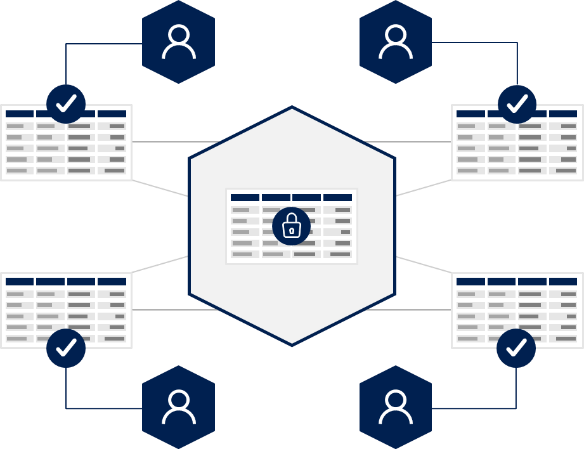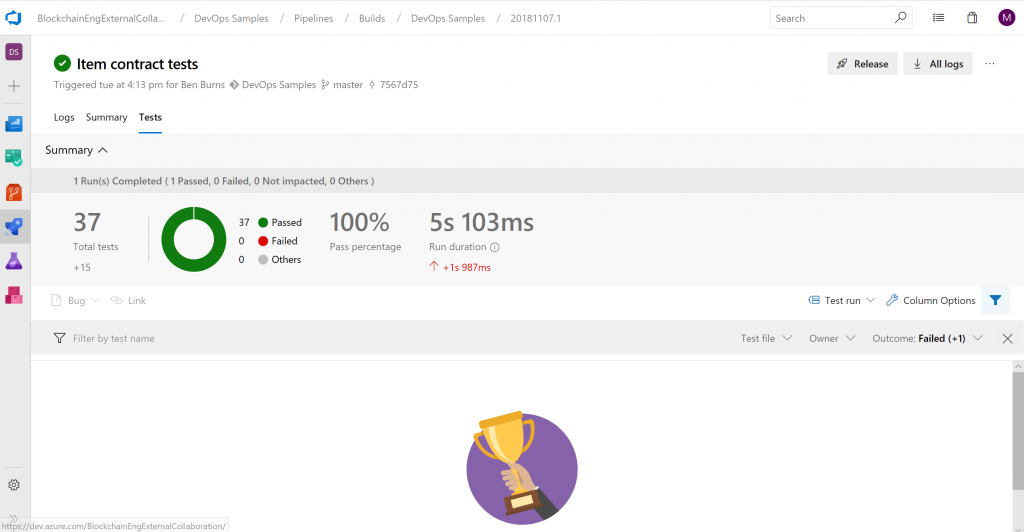Blockchain has emerged from the shadow of its cryptocurrency origins to be seen as a transformative data technology that can power the next generation of software for multi-party Enterprise and consumer scenarios. With the trust and transparency that blockchain can deliver, this shared data technology is seen as a disruptor that can radically transform assumptions, costs, and approaches about how business is done.

Microsoft Azure has had blockchain offerings since 2015 and the technology is now moving from initial PoCs and pilots to mainstream production. Customers around the world are building blockchain solutions on Azure that are innovating the way they do business – from Interswitch’s work in payments in Africa, to Maersk transforming maritime insurance, to Buhler using it to help ensure the food supply chain is safe.
With the mainstreaming of blockchain technology in Enterprise software development, organizations are asking for guidance on how to deliver DevOps for smart contracts and blockchain projects.
Common questions include:
- My business logic and data schema for that logic are reflected in smart contracts. Smart contracts are written in languages I’m less familiar with like Solidity for Ethereum, Kotlin for Corda, or Go for Hyperledger Fabric. What tools can I use to develop those in?
- How do I do I do things like unit testing and debugging on smart contracts?
- Many blockchain scenarios reflect multi-party transactions and business workflows. These workflows include signed transactions from multiple parties happening in specific sequences. How do I think about data for test environments in that context?
- Smart contracts are deployed to the blockchain, which is immutable. How do I need to think about things such as infrastructure as code, local dev/test, upgrading contracts, etc.?
- Blockchain is a data technology shared across multiple organizations in a consortium, what are the impacts on source code control, build and release pipelines in a global, multi-party environment?
While there are some nuances to the approach, the good news is that just like other types of solution development, this model can readily be addressed in a DevOps model. Today, we’re announcing the release of the whitepaper, “DevOps for Blockchain Smart Contracts.”

Complementing the whitepaper is an implementation guide, available through the Azure Blockchain Development Kit, that shows how to implement CI/CD for smart contracts and infrastructure as code using Visual Studio Code, GitHub, Azure DevOps and OSS from Truffle.
To stay up with the latest from Azure Blockchain follow us on Twitter @MSFTBlockchain or check out our new show on Ch9 “Block Talk” where each week our engineers cover new topics on building with blockchain in the cloud.

0 comments